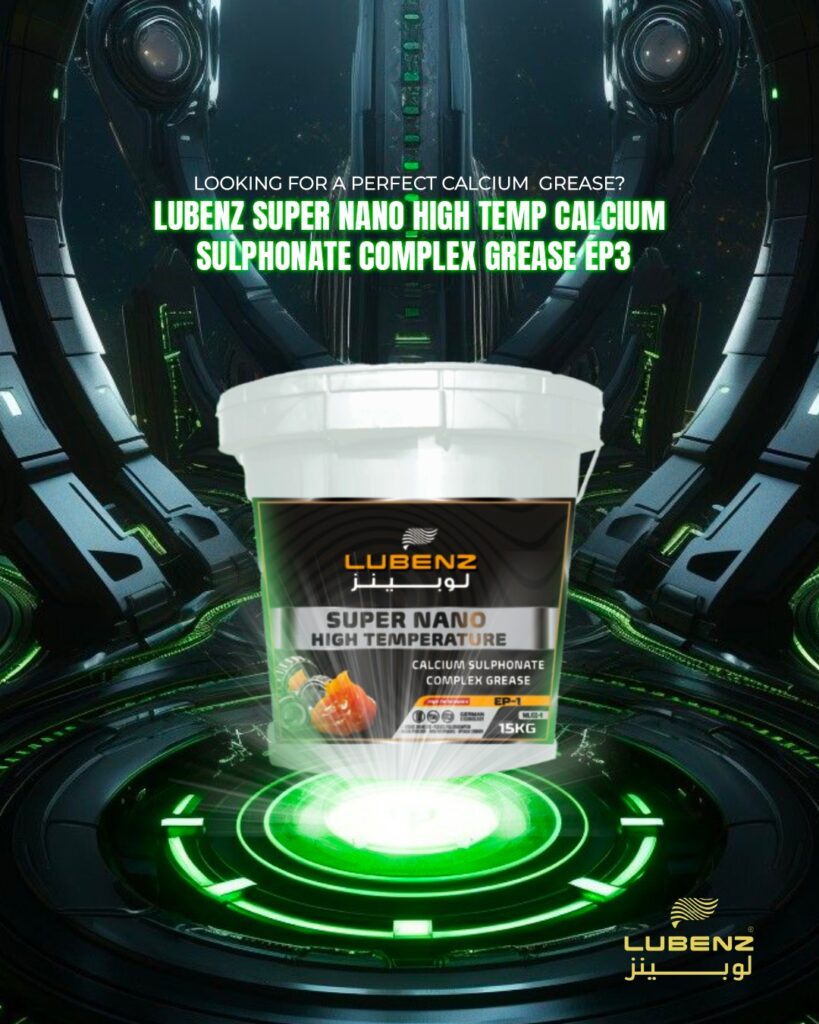Calcium Greases wholesaler in Lebanon
Calcium Greases supplier in Lebanon
Comparative Analysis with Other Greases
To fully appreciate the limitations of calcium greases, it's helpful to compare them with other types of greases like lithium, aluminum complex, or synthetic greases. These comparisons can highlight where calcium greases excel and where they fall short.
Lithium Greases: Lithium greases are more versatile, with a higher temperature tolerance and better mechanical stability, making them a popular choice for automotive and industrial applications. They also have a higher load-carrying capacity, which is essential for heavy-duty machinery.
Aluminum Complex Greases: These greases are superior in terms of water resistance and high-temperature stability compared to calcium greases. They are often used in environments where extreme conditions are present, such as in heavy-duty bearings and high-pressure systems.
Synthetic Greases: Known for their excellent performance in both high and low temperatures, synthetic greases outperform calcium greases in terms of longevity, oxidation resistance, and overall durability. They are ideal for specialized applications where premium performance is required, although they come at a higher cost.
Advancements in Grease Technology
There have been advancements in grease technology that address some of the traditional limitations of calcium greases. For example, calcium sulfonate complex greases have been developed to combine the water-resistant properties of traditional calcium greases with enhanced high-temperature performance and load-carrying capacity. These greases offer a middle ground, providing some of the benefits of more advanced greases while retaining the water resistance of calcium-based formulations.
Industry-Specific Applications
While calcium greases have limitations, they still serve important roles in specific industries. For example:
Marine Industry: The excellent water resistance of calcium greases makes them invaluable in marine environments, where equipment is constantly exposed to saltwater and moisture. Despite their limitations in other areas, their ability to prevent corrosion and maintain lubrication in wet conditions is unmatched.
Agriculture: In farming, where equipment operates in dirty, wet, and often low-temperature environments, calcium greases are commonly used for lubricating parts like tractor fittings, plows, and irrigation systems. Their cost-effectiveness and water resistance make them ideal for these conditions.
Environmental Considerations
Calcium greases are often considered more environmentally friendly than some other greases, particularly those that use heavy metal additives. The biodegradability of certain calcium greases makes them suitable for applications where environmental impact is a concern, such as in agriculture or forestry. However, as industries increasingly focus on sustainability, the development of high-performance, eco-friendly greases is becoming more important.
Maintenance Practices
The limitations of calcium greases also underscore the importance of proper maintenance practices. In environments where calcium greases are used, regular monitoring and timely replacement are crucial to avoid issues like oxidation, degradation, and inadequate lubrication. Maintenance schedules may need to be adjusted to account for the grease’s performance characteristics, ensuring that machinery remains in good working order.
These additional perspectives provide a broader understanding of calcium greases, helping to contextualize their role in various industries and the ongoing developments in lubricant technology.
Ca Calcium Greases Manufacturer in Egypt Calcium Greases Manufacturer in Egypt Calcium Greases Manufacturer in Egypt Calcium Greases Manufacturer in Egypt Calcium Greases Manufacturer in Egypt Calcium Greases Manufacturer in Egypt Calcium Greases Manufacturer in Egypt Calcium Greases Manufacturer in Egypt Calcium Greases Manufacturer in Egypt Calcium Greases Manufacturer in Egypt Calcium Greases Manufacturer in Egypt Calcium Greases Manufacturer in Egypt Calcium Greases Manufacturer in Egypt Calcium Greases Manufacturer in Egypt Calcium Greases Manufacturer in Egypt Calcium Greases Manufacturer in Egypt Calcium Greases Manufacturer in Egypt Calcium Greases Manufacturer in Egypt Calcium Greases Manufacturer in Egypt Calcium Greases Manufacturer in Egypt Calcium Greases Manufacturer in Egypt Calcium Greases Manufacturer in Egypt Calcium Greases Manufacturer in Egypt Calcium Greases Manufacturer in Egypt Calcium Greases Manufacturer in Egypt Calcium Greases Manufacturer in Egypt Calcium Greases Manufacturer in Egypt Calcium Greases Manufacturer in Egypt Calcium Greases Manufacturer in Egypt Calcium Greases Manufacturer in Egypt Calcium Greases Manufacturer in Egyptlcium Greases Manufacturer in Egypt
Calcium greases, while highly valued for their water-resistant properties and affordability, do come with certain limitations that can affect their suitability for various applications. Understanding these limitations is crucial for industries that require optimal performance in challenging environments. Here’s a detailed explanation of the primary limitations of calcium greases:
1. Temperature Sensitivity
Calcium greases generally exhibit limited performance at high temperatures. This is due to the thermal stability of the calcium soap thickener used in the grease formulation. When exposed to elevated temperatures, calcium greases can begin to soften, lose their consistency, and even melt, which leads to a reduction in their lubricating effectiveness. This temperature sensitivity restricts their use in environments where machinery and equipment operate under high thermal conditions, such as in automotive engines, high-speed bearings, or industrial applications that involve intense friction or heat generation.
For instance, in industrial settings like steel manufacturing or heavy-duty automotive applications, where temperatures can easily exceed 120°C (248°F), calcium greases may fail to provide adequate protection. This could result in increased wear and tear, potential equipment failure, and costly downtime. Therefore, in such high-temperature environments, alternative greases, such as lithium or complex greases, which have better thermal stability, are preferred.
2. Limited Load-Carrying Capacity
Another significant limitation of calcium greases is their relatively low load-carrying capacity. Load-carrying capacity refers to the grease’s ability to withstand heavy loads and maintain its lubricating film between metal surfaces under pressure. Calcium greases typically lack the necessary additives or structural strength to perform effectively under heavy mechanical loads.
In applications where equipment is subjected to high pressures, such as in heavy industrial machinery, construction equipment, or certain types of bearings, the low load-carrying capacity of calcium greases can lead to inadequate lubrication. This can cause metal-to-metal contact, increased friction, wear, and potentially catastrophic equipment failure. To address this, industries that require greases with high load-bearing capabilities often opt for other types of greases, like lithium complex or molybdenum disulfide (MoS2) fortified greases, which are designed to handle heavy loads more effectively.
3. Oxidation and Thermal Degradation
Although calcium greases offer good resistance to oxidation at moderate temperatures, they are prone to oxidation and thermal degradation when exposed to prolonged high temperatures. Oxidation occurs when the grease reacts with oxygen in the air, leading to the formation of acidic compounds, which can further break down the grease’s structure. This degradation results in a loss of lubricating properties, thickening of the grease, and the formation of sludge or varnish, which can impair the operation of machinery.
In applications where continuous high-temperature exposure is common, such as in certain types of industrial processing equipment or in high-speed machinery, the oxidative stability of calcium greases may be insufficient. Over time, the grease can harden, lose its lubricating efficiency, and require more frequent replacement, increasing maintenance costs and downtime.
4. Lower Pumpability at Low Temperatures
Calcium greases can also have limitations in terms of their pumpability, particularly at low temperatures. Pumpability refers to the ease with which grease can be dispensed or pumped through a lubrication system. At low temperatures, calcium greases may become too thick or hard, making it difficult to apply them using standard grease guns or centralized lubrication systems. This can be a significant drawback in cold environments or in industries that operate in regions with harsh winters.
Poor pumpability at low temperatures can lead to inconsistent lubrication, where some parts of the machinery may not receive sufficient grease, resulting in increased friction and wear. To mitigate this issue, industries operating in colder climates often use greases with better low-temperature performance, such as lithium or synthetic greases, which maintain their pumpability even in freezing conditions.
5. Incompatibility with Other Greases
Calcium greases may also face issues related to compatibility with other types of greases. When different types of greases are mixed, there is a risk of incompatibility, leading to the breakdown of the grease structure, separation of the oil and thickener, and loss of lubricating properties. For example, mixing calcium grease with a lithium-based grease may result in a decrease in the overall effectiveness of the lubricant, potentially leading to inadequate protection of machinery components.
This incompatibility issue can complicate maintenance procedures, especially in environments where multiple types of greases are used. Maintenance teams need to be aware of the specific type of grease used in each application and avoid mixing different greases unless they are confirmed to be compatible. Otherwise, the unintended mixing of incompatible greases could lead to increased maintenance challenges and potential equipment damage.
Calcium Greases Manufacturer in Egypt Calcium Greases Manufacturer in Egypt Calcium Greases Manufacturer in Egypt Calcium Greases Manufacturer in Egypt Calcium Greases Manufacturer in Egypt Calcium Greases Manufacturer in Egypt Calcium Greases Manufacturer in Egypt Calcium Greases Manufacturer in Egypt Calcium Greases Manufacturer in Egypt Calcium Greases Manufacturer in Egypt Calcium Greases Manufacturer in Egypt Calcium Greases Manufacturer in Egypt
6. Limited Availability of Specialized Additives
While calcium greases are effective in basic applications, they generally lack the range of specialized additives found in other types of greases. Additives like extreme pressure (EP) agents, anti-wear compounds, and corrosion inhibitors enhance the performance of greases under specific conditions. The absence of such additives in standard calcium greases limits their use in demanding applications where additional protection is required.
For example, in heavy-duty industrial applications that involve high pressures, shock loads, or corrosive environments, the absence of EP additives in calcium greases can lead to rapid wear and potential failure of lubricated components. Industries that require enhanced performance characteristics often turn to more advanced greases that incorporate these additives, such as lithium complex or synthetic greases.
Conclusion
While calcium greases are valued for their affordability, water resistance, and basic lubricating properties, their limitations make them less suitable for high-temperature, high-load, or specialized applications. Understanding these limitations helps industries make informed decisions about when and where to use calcium greases, ensuring that machinery and equipment receive the appropriate level of protection and maintenance for optimal performance and longevity.
Calcium greases are a type of lubricant known for their water-resistant properties and ability to perform well in a variety of industrial applications. They are made by thickening mineral or synthetic oils with calcium-based soaps, usually calcium stearate or calcium hydroxide. These greases are particularly valued in environments where equipment is exposed to water, high humidity, or other challenging conditions that can lead to corrosion and wear.
Key Properties of Calcium Greases:
Water Resistance: One of the most significant characteristics of calcium greases is their excellent resistance to water. This makes them ideal for use in wet environments, such as marine applications, agricultural machinery, and outdoor equipment.
Oxidation Stability: Calcium greases generally have good oxidation stability, meaning they resist breakdown over time when exposed to air. This property helps in maintaining the grease's effectiveness over extended periods.
Temperature Range: While calcium greases are effective at moderate temperatures, they may not perform as well in extremely high temperatures compared to other greases like lithium or complex greases. However, they are still widely used in many applications where extreme heat is not a primary concern.
Mechanical Stability: These greases maintain their consistency and performance under mechanical stress, making them suitable for applications involving continuous movement or load-bearing.
Corrosion Protection: Calcium greases offer good protection against corrosion, which is especially important in industries where metal surfaces are regularly exposed to moisture or chemicals.
Applications of Calcium Greases:
Agriculture: In farming equipment, calcium greases are used to lubricate parts exposed to dirt, moisture, and varying weather conditions. This helps in prolonging the life of machinery like tractors, plows, and irrigation systems.
Construction: In the construction industry, calcium greases are used in heavy machinery, such as cranes, excavators, and loaders, where exposure to water and varying loads is common.
Marine Industry: Ships, docks, and other maritime equipment benefit from the water-resistant properties of calcium greases, making them essential in maintaining and protecting marine assets.
Automotive: Although less common in high-performance automotive applications, calcium greases are still used in older vehicles and specific parts like door hinges, chassis points, and other components that are exposed to the elements.
Industrial Equipment: In various industrial settings, calcium greases are used to lubricate machinery that operates in wet or humid environments, ensuring smooth operation and preventing rust.
Calcium greases are known for their effectiveness in specific applications, particularly where water resistance and moderate temperature performance are key considerations. The effectiveness of calcium greases stems from their unique properties, which make them suitable for a range of industrial and commercial uses. Here’s a closer look at what makes calcium greases effective:
1. Excellent Water Resistance
One of the standout features of calcium greases is their exceptional resistance to water. This property makes them particularly effective in environments where equipment is exposed to moisture, humidity, or direct contact with water. The calcium soap thickener used in these greases creates a barrier that prevents water from washing away the grease, ensuring continuous protection and lubrication of metal surfaces.
Applications: This water resistance is especially useful in marine environments, agricultural machinery, and outdoor equipment, where maintaining lubrication despite exposure to water is critical. For instance, in marine applications, calcium greases effectively protect ship components, docks, and other equipment from corrosion and wear due to seawater exposure.
2. Good Mechanical Stability
Calcium greases have good mechanical stability, meaning they maintain their consistency and performance under mechanical stress. When applied to moving parts, such as bearings or gears, these greases do not easily break down, ensuring that the lubricant stays in place and continues to protect the surfaces from friction and wear.
Applications: This property makes calcium greases effective in machinery with moving parts that are subjected to continuous motion or load, such as in agricultural equipment, construction machinery, and certain industrial processes. The grease’s ability to stay intact under stress helps in reducing downtime and maintenance costs.
3. Corrosion Protection
The calcium soap in these greases provides a protective layer on metal surfaces, shielding them from rust and corrosion. This is particularly important in environments where metals are exposed to moisture or corrosive substances, as the grease helps to prevent oxidation and prolong the life of the equipment.
Applications: Industries such as agriculture, construction, and marine benefit from this corrosion protection, as it helps in maintaining the integrity of equipment that is regularly exposed to harsh conditions. For example, in farming, calcium greases are used to protect the metal parts of tractors and plows from rusting due to exposure to rain and soil moisture.
4. Affordability and Accessibility
Calcium greases are relatively inexpensive to produce and are widely available, making them a cost-effective option for many industries. Their affordability does not compromise their effectiveness in suitable applications, making them a popular choice for general-purpose lubrication where extreme performance characteristics are not required.
Applications: For small businesses or operations with tight budgets, the use of calcium greases can be an economical solution for basic lubrication needs, such as in small machinery, tools, and equipment that do not operate under extreme conditions.
5. Ease of Application
Calcium greases are easy to apply, whether manually or through standard lubrication systems. They have a smooth texture that allows them to spread evenly across surfaces, ensuring comprehensive coverage and effective lubrication.
Applications: This ease of application is beneficial in environments where regular maintenance is required. For example, in automotive applications, calcium greases can be used for lubricating door hinges, chassis points, and other parts where easy and quick application is needed.
6. Environmentally Friendly Options
Many calcium greases are formulated to be biodegradable, which makes them a more environmentally friendly option compared to some other types of greases that may contain harmful additives. This is particularly important in industries that prioritize sustainability and environmental responsibility.
Applications: In industries like agriculture or forestry, where environmental impact is a concern, the use of biodegradable calcium greases ensures that any excess lubricant that comes into contact with the environment breaks down naturally without causing harm.
Limitations in Effectiveness:
While calcium greases are effective in the areas mentioned above, their effectiveness is limited in certain conditions:
High Temperatures: Their performance decreases significantly at high temperatures, where they can soften or melt, leading to a loss of lubricating properties. For applications requiring high-temperature stability, other greases like lithium-based or synthetic greases are more effective.
Heavy Loads: Calcium greases are not designed to handle heavy mechanical loads. In situations where equipment is subjected to high pressure or shock loads, their effectiveness diminishes, and they may not provide adequate protection.
Conclusion
Calcium greases are effective lubricants in applications where water resistance, corrosion protection, mechanical stability, and affordability are key factors. They are widely used in industries such as agriculture, marine, construction, and general machinery maintenance. However, their effectiveness is limited in high-temperature and high-load environments, where alternative greases may be required. Understanding these strengths and limitations helps in selecting the right lubricant for specific applications, ensuring optimal equipment performance and longevity.



